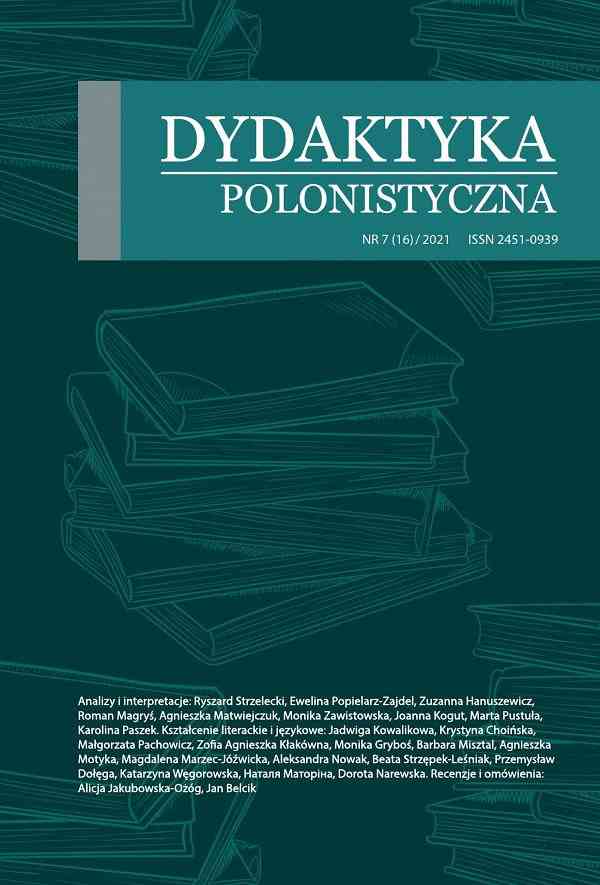Poszukiwanie własnej tożsamości – wyzwanie i zadanie. Fuga Wita Szostaka
DOI:
https://doi.org/10.15584/dyd.pol.16.2021.5Słowa kluczowe:
tożsamość, Wit Szostak, "Fuga", estetyka fragmentu, pamięć, dom, problematyka egzystencjalnaAbstrakt
Fugę Wita Szostaka buduje osiem historii o losach Bartłomieja Chochoła. Każda z odsłon losów postaci ukazana jest w odrębnym rozdziale, czasami dwóch. Rozdziały numerowane są cyframi rzymskimi, niekiedy także literami (a, b). W utworze tym podjęta zostaje problematyka tożsamościowa – poznajemy różne oblicza Bartłomieja Chochoła: ostatniego króla Polski (Fuga I), towarzysza zabaw (Fuga II), obserwatora i kronikarza (Fuga IIIa i Fuga IIIb), melancholika (Fuga IV), rencisty (Fuga Va i Fuga Vb), człowieka sukcesu (Fuga VI), samotnika i starca (Fuga VII i Fuga VIII – niedokończona). Na podstawie rodzajów tożsamości wyszczególnionych przez Katarzynę Waszyńską (tożsamość jednostkowa, narodowa, społeczna, grupowa, kulturowa) zostaje omówiona postać bohatera-narratoraPobrania
Opublikowane
2021-12-15
Jak cytować
Matwiejczuk, A. (2021). Poszukiwanie własnej tożsamości – wyzwanie i zadanie.
Fuga Wita Szostaka. Dydaktyka Polonistyczna, 16(7), 65–75. https://doi.org/10.15584/dyd.pol.16.2021.5
Numer
Dział
ANALIZY I INTERPRETACJE


